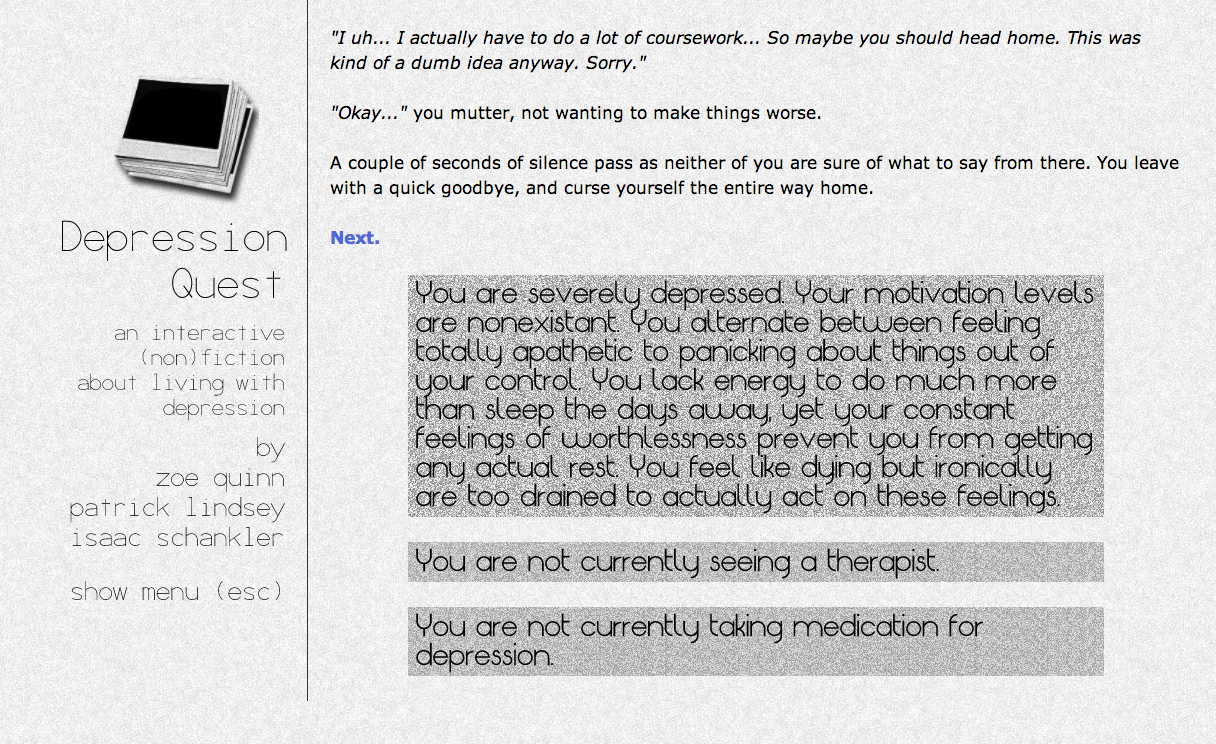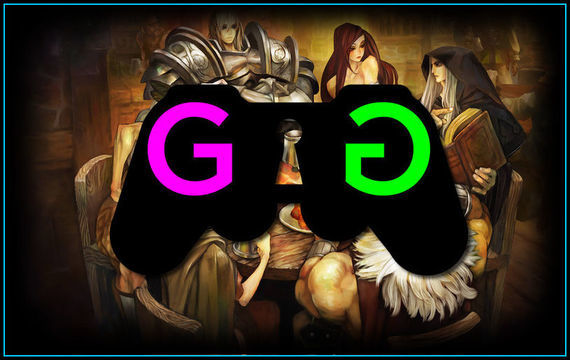Throughout 2015, the video game community has continued to wrestle with a long-festering issue that was first brought to light in the latter half of last year. As women began to make headway in an industry that has long relegated them to the role of laughably dressed sex dolls or butched-up background players, a movement arose to help ensure that things stay the way they are.
Of course, I’m referring to GamerGate, last year’s black mark on the gaming community — an entire coalition designed to make sure that it will always be okay to toss practically nothing on simulated Barbie dolls without having to answer to anyone.
Naturally, these people claim that their motivation is to keep the fine art of video game journalism as pure as possible by working to make damn well sure that video game writers aren’t doing anything naughty in the performance of their tasks. However, some rare public appearances in 2015 have told a different story.
Hey, What’s GamerGate?

For those who are not aware, allow us to oversimplify an incredibly complex topic for you. What is GamerGate, you ask?
GamerGate is the result of a petty turd trying to get revenge on the girl who dumped him. No, not really…well, kind of. The whole thing started when some lovelorn fool posted some quickly disproven nonsense (9,425 words of nonsense, to be exact) about how an ex-girlfriend and indie game developer named Zoë Quinn exchanged sex-type favors for good reviews of her game, which had released to positive acclaim earlier in the year.
Regardless of the fact that the accusations levied against the aforementioned developer proved false, she still endured a sensational amount of hatred for the news, dealing with everything from doxxing to death threats. It wasn’t long before the “debate” spilled into the larger video game community, with anonymous dudes adopting the handle #GamerGate and waging a war on the perceived free ride that women have been getting in the video game industry of late.
In other words, supporters of GamerGate are — and I’ll try to say this as impartially as possible — those individuals who feel as though the quality of the games produced today, or at the very least the journalism surrounding them, has been sacrificed in favor of adhering to a feminist or progressive agenda. So, when Assassin’s Creed drops a lady into the role of a lead protagonist, for example, that’s backlash against GamerGate. And when Hideo Kojima has a major character in his game who’s basically naked (but they explain why in the plot!), that’s cool with the bros who support old school video game purity. You with me?
So, What Have These Guys Been Up To?

It’s been a little over a year since Quinn, her female colleagues, and journalist Anita Sarkeesian were initially targeted by threats. In that time, what have the activists crusading for video game purity accomplished?
Admittedly, not a whole lot. The development of video games is a several year long process, so the games that were in development when these guys started crying about their exposure to simulated dudes were really unable to respond to the criticism. In other words, when Assassin’s Creed Syndicate featured female protagonist Evie Frye, it wasn’t an answer to the group’s lady-hating ways — it was the result of a decision made in, like, 2013 at the very latest. In other words, the folks driving the GamerGate controversy will have to wait a while until their critiques render results in AAA form. That said, their irrepressible complaining has managed to keep GamerGate in the background of the community throughout 2015.
Earlier in the year, one of GamerGate’s primary targets, Brianna Wu, wrote a piece outlining her life in the wake of the movement. Mincing no words, she refers to GamerGate as a “hate group,” and details one encounter in which a man “made a video holding up a knife, explaining how he’ll murder me ‘Assassin’s Creed Style.’” It’s a chilling look at the motives of a movement that’s been consistently linked with threats and violent tactics.
How about another example? Here’s writer Sarah Nyberg’s essay about the difficulties of being female and critiquing GamerGate:
My websites were taken down from distributed denial of service attacks. Gamergate websites openly posted instructions on how to illegally gain access to my servers via SQL injection exploits; this was used to leak chat logs between a small group of friends from almost a decade ago. Campaigns were launched to bombard advertisers on my sites with lies in an attempt to get them to pull out.
Those examples are actually on the nicer end of the tactics used by the advocates of GamerGate when terrorizing the reporter. Nyberg and Wu represent just two of the women who have been victimized by the proponents of GamerGate in 2015.
They Shot Themselves In The Foot At SXSW

Just a few short months ago, the group’s scare tactics saw a short-lived victory after SXSW canceled two panels related to the ongoing harassment of women in the gaming community amid “numerous threats of on-site violence.” The decision righteously aggravated a whole lot of people, who accused the festival organizers of caving into the kind of pressure they were supposed to be fighting.
Fortunately, the people who organize SXSW caved again, and reversed their verdict a few days later, saying, “By canceling two sessions we sent an unintended message that SXSW not only tolerates online harassment but condones it, and for that we are truly sorry.”
In fact, in their attempt to erase the drama, SXSW combined the panels into an all-day “Online Harassment Summit,” which will be live streamed for free in its entirety. In other words, in their attempt to curb the conversation, the advocates of GamerGate have effectively turned it into a focal point of one of the biggest cultural gatherings in the world. Nice work, fellas.
You Can Bet They’ll Whine Ineffectually Into 2016 And Beyond

The guys who invented GamerGate are the same dummies who said that Mad Max: Fury Road sucked because Charlize Theron was too awesome. They’re the kind of guys whose rampant jack-holery forces game journalists to focus on the politics of a small and aggressive special interest group instead of reporting on video games. It’s still a toxic part of gaming culture that needs to be shown the door.
Sure, you might think that a one-day summit starring a bunch of hippies milling around Austin will probably fix EVERYthing wrong with gaming, but there’s still more work to be done moving forward. The boys behind GamerGate are not the type to give up their cause quickly — especially since they do most of it in heroic anonymity — and gamers are not the type to express their emotions tactfully.
Whatever battlefields lie ahead in 2016, you can bet that there will be some harsh words and nasty emails exchanged over it.







Published: Dec 3, 2015 01:08 pm